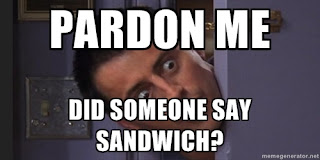Hard
yet strangely comforting truth #1: we will all get negative feedback on our
writing at some point.
Hard
yet strangely comforting truth #2: not all feedback, good or bad, is useful.
Whether
we’re talking about reviews for a published book, or rejections from an agent
or publisher, or critique from a professional or feedback from a Beta or CP…
not everyone is going to agree all the time.
One
person might love your characters and think they are so flibbin’ fantastic it’s
insane and the next person might hate them, call them dull or stupid or just
plain unrelatable. Who’s right? What do you do?
What
about when you get one terrible, horrible no good at all review/critique /etc
that makes you pull your hair out?
This
is the reason why you need to get multiple readers for your work. Every.
Single. Time. Even once you’re a successfully published author (maybe
especially then) you still need multiple readers with multiple viewpoints. Because there will always be people who don’t
“get” you, your writing or your story. Maybe even someone who’s loved your
previous work.
You
can’t please everyone.
So
what do you do when you get that negative review? One you totally don’t agree
with?
First,
you get a second (or third or fourth etc.) opinion, maybe asking them to look
specifically at what the last reviewer pointed out.
If
you hear the same feedback again, they might be on to something.
If
you don’t, the first reviewer may might be wrong—in this particular
circumstance for this particular story. Even an agent or an editor can be
wrong.
BUT…
no matter what, never ignore a well-meaning critique. No matter how we react to
feedback—love it, hate it, get is but still hate it, have absolutely no idea
how to fix it, want to punch them in the face through your computer screen or
kiss them for being so spot on it’s insane— you must take it into consideration.
Why? Because they might be totally completely right and you are just too
stubborn to see it.
If a critique doesn’t hit you square in the face making you say “DUH!!” or “Ooh!”, then let it sit. Don’t react. Don’t respond. Give yourself a little distance.
If a critique doesn’t hit you square in the face making you say “DUH!!” or “Ooh!”, then let it sit. Don’t react. Don’t respond. Give yourself a little distance.
Then
really think about what they were saying and why. Maybe reread, specifically
looking at what they pointed out and try to see it through their eyes. A lot of
times there is *something* wrong, or at least something that can be improved
on, they might have just suggested the wrong fix or their comments came across
wrong, or again, you were just too stubborn to see clearly.
Or, maybe they were wrong. Maybe they have a different viewpoint or different expectations and want your work to be something you don’t want it to be. That’s okay. That’s just a difference in opinion.
Or, maybe they were wrong. Maybe they have a different viewpoint or different expectations and want your work to be something you don’t want it to be. That’s okay. That’s just a difference in opinion.
Sometimes
the words you use don’t click for them, don’t inspire the kind of image you
were looking for. Play around and see if you can find a new way to get your
point across, but if you can’t it’s entirely possible that they just aren’t the
right audience for your story so don’t stress about it too much.
This is your work, not theirs. Do what’s right for you.
It’s a balancing act. Opening your mind to possibilities of the critiquers suggestions so you can really consider how to fix it, and being true to your own creative muse.
This is your work, not theirs. Do what’s right for you.
It’s a balancing act. Opening your mind to possibilities of the critiquers suggestions so you can really consider how to fix it, and being true to your own creative muse.
Just always remember, that no matter who it is suggesting
changes, it’s okay to say no.
There is no right or wrong answer, only what is perceived to be the best way to express a thought, image, character, emotion, story etc. What you think is best, is not always going to be what others think is best. Learn from what your peers say, and grow but never let them change you, not really.
There is no right or wrong answer, only what is perceived to be the best way to express a thought, image, character, emotion, story etc. What you think is best, is not always going to be what others think is best. Learn from what your peers say, and grow but never let them change you, not really.














